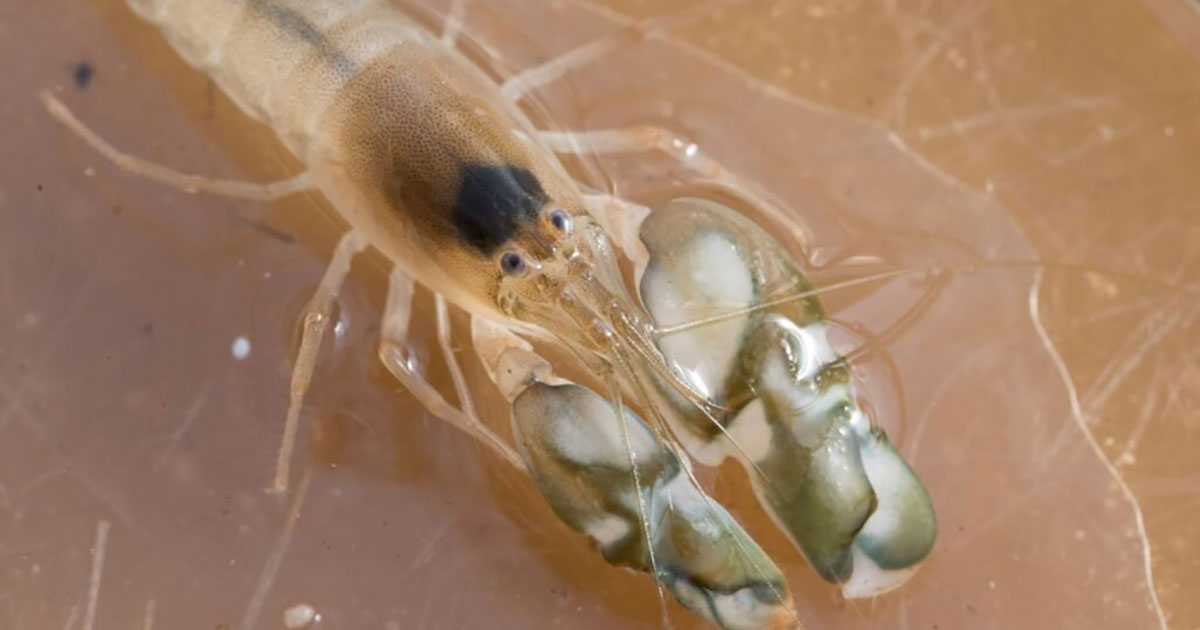One of the ocean's loudest creatures is smaller than you'd expect -- and will get even louder and more troublesome to humans and sea life as the ocean warms, according to new research presented at the Ocean Sciences Meeting 2020.
Snapping shrimp create a pervasive background crackling noise in the marine environment. Scientists suspect the sound helps the shrimp communicate, defend territories and hunt for food. When enough shrimp snap at once, the noise can dominate the soundscape of coastal oceans, sometimes confusing sonar instruments.
Researchers will present new results at the Ocean Sciences Meeting 2020, suggesting that with increased ocean temperatures, snapping shrimp will snap more often and louder than before. This could amplify the background noise, or soundscape, of the global ocean, with implications for marine life and humans.
"It's a really cool little animal," said Aran Mooney, a marine biologist at Woods Hole Oceanographic Institution who will present the work. "They're a crustacean, kind of like a little shrimp or lobster. They make a sound by like closing a claw so fast it makes this bubble and when that bubble implodes, it makes that snapping sound."
Mooney and his colleague Ashlee Lillis detected a strong relationship between warmer waters and louder, more frequent snapping shrimp sounds by experimenting with shrimp in tanks in their lab and by listening to shrimp in the ocean at different water temperatures.
"As you increase that temperature, snap rates increase," Mooney said.
This makes sense because shrimp are essentially cold-blooded animals, meaning their body temperature and activity levels are largely controlled by their environment, in the same way ants can move faster in warmer weather than in cool weather.
"We can actually show in the field that not only does snap rate increase, but the sound levels increase as well," Mooney said. "So the seas are actually getting louder as water, warmer temperatures."
Louder snapping shrimp could potentially have harmful effects on fish and even sonar used by submarines and ships.
"We know that fish use sound to communicate," Mooney said. "Fish call each other, and they make sounds to attract mates and for territorial defense. If the seas get louder, it has the potential to influence those communications. We don't really know that yet. That's something we have to follow up on."
“Human use of sound in the oceans might also be impaired by very loud snapping shrimp. Common instruments like sonar fish finders might be affected, Mooney said. There is also the possibility that louder seas could affect instruments the Navy uses to detect mines, which could have implications for national defense,” he said.
Listen to snapping shrimp sounds here.
Story by American Geophysical Union



